At ProfitArch™, we’re all about helping you build a business that supports you in living a life of meaning.
And while strategy, vision, and marketing matter, they only work if your accounting does too.
Whether you’re just starting to clean up your financial systems — or already a client implementing smart strategies with us — these 10 best practices serve as a check-in and a tune-up to help you stay ahead.
Use this list to uncover your strengths, flag gaps, and feel even more confident about the numbers guiding your decisions.
1. Keep Business and Personal Finances Separate
It’s simple, but powerful. Clear lines separating business and personal ensure cleaner books, better asset protection, and clearer reporting.
2. Pay a Professional to Set Up Your Chart of Accounts
The chart of accounts is how you classify the income and expenses of your business. Incorrectly setting it up guarantees that your books will be a mess. Even if your intention is to do your own bookkeeping, get the foundation set right by investing a little bit for professional guidance.
3. Review Your Numbers Weekly (Yes, Weekly!)
A quick Friday financial review helps spot trends, prep for decisions, and reduce stress. Compare this week’s numbers with previous weeks and averages for the past month, quarter, and year. The key numbers to look at are revenue (sales), bank balances, and your five largest expense accounts.
4. Refine Your Chart of Accounts Over Time
What you track should reflect your priorities. It’s a fine balance between having too many accounts and not enough. Likewise, understanding what should be tracked often comes with experience. We’d be happy to talk with you about how to update and customize your chart of accounts so that your financials support the growth of your business.
5. Reconcile Monthly — Not Just at Year-End
This isn’t just cleanup — it’s quality control. You can’t grow what you can’t see clearly.
6. Know Your AR Like a Hawk
Cash flow is the lifeblood of your business. Allowing your clients to pay you late increases the chance that you won’t be paid at all. It also costs you money when you have to find other methods to stabilize your business cash flow.
7. Plan for Taxes Before They Happen
If you’re a ProfitArch™ client, you know we take taxes seriously — and strategically. Set aside funds, leverage quarterly estimates, and avoid the April scramble.
8. Review Financial Reports Regularly
Your P&L, balance sheet, and cash flow statements aren’t just reports — they’re decision-making tools. If your current professional isn’t able or willing to help you understand how to use your financial reports, that may be an indicator that it’s time to find a new one.
9. Automate Where It Makes Sense
From invoicing to payroll — the less manual work, the fewer errors. Not sure what to automate next? Let’s talk, and we can help you create your custom tech stack.
10. Proactively Work With Your Bookkeeper
No matter how good your bookkeeper is, they are not living in your business. When you foresee that something might change — a new revenue stream, big expense, or change in operations — let your bookkeeper know before it happens so they can help you understand the effect it might have on your business.
Next Steps
Whether this list highlights wins we’ve already tackled together or surfaced a few areas that still need attention — consider it part of your continued growth.
We build financial systems that give you clarity, help you make informed decisions, create lasting stability, and live a life of meaning.
👉 Book your discovery call and let’s discuss how we can help you keep moving forward:
By the way, this is not tax advice. Professional Advice occurs when you pay us to look at your personal situation and recommend a particular plan of action that suits that situation. The information provided here is for educational purposes only. We hope that it will generate a lot of great questions. However, you will need to engage a qualified professional to get the answers.





